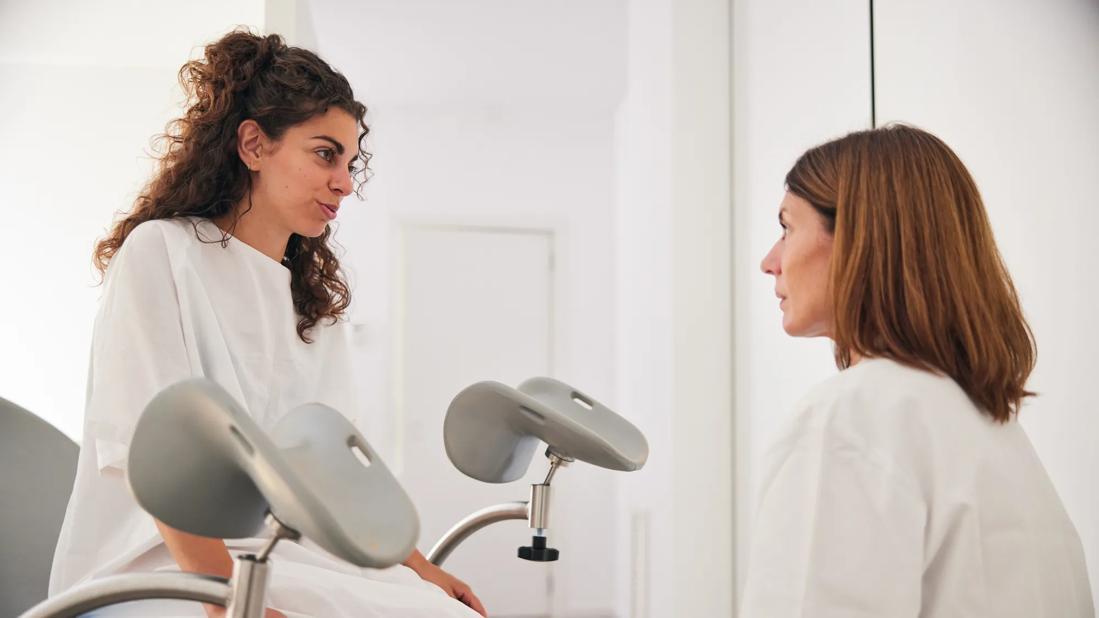The virus often clears up on its own within two years, but it can also linger and can cause further complications

Human papillomavirus (HPV) is the most common sexually transmitted infection (STI) in the United States. A diagnosis can bring tons of questions, like What do I do about it? Will it cause health problems? and especially, Does HPV ever go away?
Advertisement
Cleveland Clinic is a non-profit academic medical center. Advertising on our site helps support our mission. We do not endorse non-Cleveland Clinic products or services. Policy
We’ve got answers to guide you. Ob/Gyn Oluwatosin Goje, MD, a reproductive infectious disease specialist, explains what you need to know about HPV and the long-term effects it can sometimes have.
Oftentimes, HPV goes away on its own without causing any health problems.
“For most people who have a healthy immune system, HPV will clear itself within one to two years,” Dr. Goje reports.
In fact, you may not even know you had HPV in the first place.
“It’s very common to have HPV and not show any symptoms,” she continues. “Most people who have HPV don’t know they’re infected and they’ll never develop symptoms.”
But that’s not the case for everyone — and that’s in part because not all human papillomavirus infections are the same. There are more than 200 types (strains) of HPV, and they can have different effects on the body.
Different strains of HPV bring different risks.
“When we talk about whether HPV goes away, we need to separate HPV itself from low-risk HPV that leads to genital warts and high-risk HPV that leads to precancerous cells and cancer,” Dr. Goje clarifies.
Advertisement
Dr. Goje explains why HPV might not go away and what can happen if it remains.
If you’re immunocompromised (aka immunosuppressed), your immune system — which is responsible for protecting you from illness — isn’t working as well as it should.
“If you have HIV or are a candidate for an organ transplant, for example, your body may have a harder time fighting HPV infections,” Dr. Goje says.
Low-risk HPV sometimes turns into genital warts, which can cause small growths or bumps to grow in and around your genitals and rectum.
The warts themselves may come and go throughout your lifetime, and there are various treatments to remove them. But there’s no cure for the virus that causes them.
“HPV with genital warts is a lifelong condition,” Dr. Goje shares. “You can still spread HPV even if you don’t have an active outbreak and even if your warts have been removed.”
About 10% of the time, high-risk HPV doesn’t go away, or it goes dormant (inactive) and keeps coming back over time. That’s when HPV can become oncogenic, or cancer-causing. It can mutate the cells of your cervix, vulva, penis, anus or mouth, leading to precancerous cells.
“Having a high-risk strain of HPV doesn’t mean you will develop cancer,” Dr. Goje says. “But high-risk HPV that isn’t managed, monitored or treated can eventually become cancer over several years.”
It’s important to know that high-risk HPV doesn’t typically bring any symptoms. That means women typically learn they’re infected through a routine Pap smear or HPV test — and men may not realize they’re infected at all.
There’s no cure for HPV, meaning there’s no medication you can take or treatment you can undergo to get rid of the virus. But HPV can — and often does — go away on its own if your immune system is able to fend it off.
When HPV persists, there are treatments (but not cures) for the effects it can have:
Early detection of HPV and abnormal cells can prevent cervical cancer. Women should begin getting regular Pap smears at age 21. Men aren’t routinely screened for HPV unless they discover a lesion and suspect genital warts.
Practicing safe sex and getting the HPV vaccine can both help prevent this STI. The vaccine is a series of three shots that protects against nine strains of HPV, including the two strains that most commonly lead to cancer.
Advertisement
It’s recommended that pre-teens get the HPV vaccine from their pediatrician when they’re 11 or 12 years old. Adults can get the vaccine, too.
“It’s available up until 45 years old. Even if you’ve been previously infected with one or more HPV strains, you’re likely not infected with all of the types that the vaccine protects against — so you can still benefit from getting vaccinated.” Dr. Goje says.
“It’s always better to go with more protection than not.”
Advertisement
Learn more about our editorial process.
Advertisement

Protecting yourself and others from a virus that causes cancer is the central focus

Yes, but symptoms can be easy to miss

‘Walking pneumonia’ is milder and doesn’t always require medication — but it’s also highly contagious

The little blue pill might help with physical arousal, but there are better treatments for low libido in women

Start having sex about 72 hours before ovulation, then at least every other day during your fertile window

The Yuzpe regimen is less effective than other forms of emergency contraceptives, and it’s associated with more side effects

Arousal without orgasm can be uncomfortable, but it’s no reason to pressure sexual interactions

From washing your hands and disinfecting surfaces to boosting your immune health, there are many ways to reduce your flu risk

Wearing a scarf, adjusting your outdoor activities and following your asthma treatment plan can help limit breathing problems

Your diet in the weeks, days and hours ahead of your race can power you to the finish line

When someone guilt trips you, they’re using emotionally manipulative behavior to try to get you to act a certain way